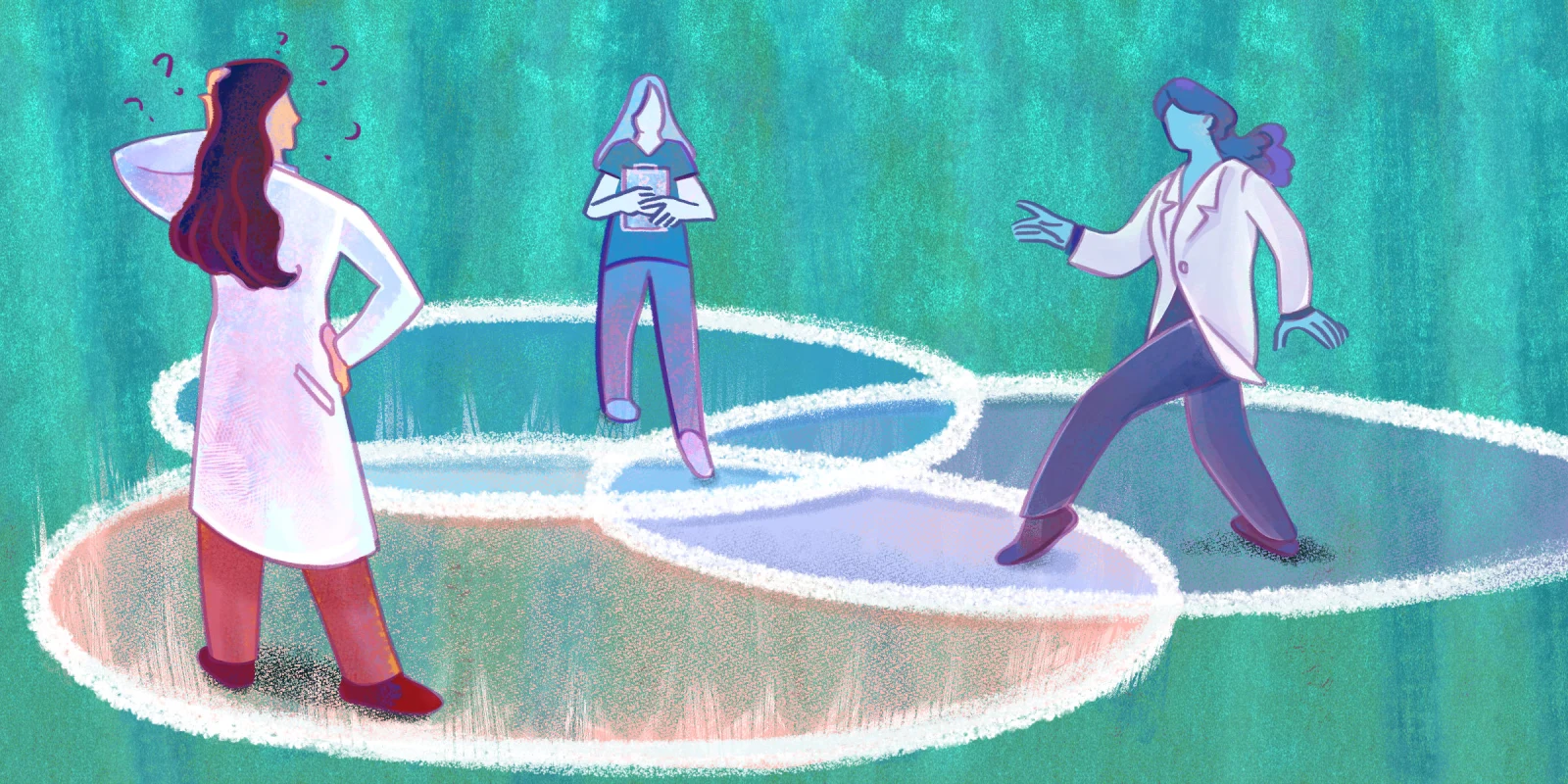Mrs. S, a generally healthy 67-year-old schoolteacher, has been my patient for about three years. Her blood pressure is controlled, and her hemoglobin A1c has hovered in the mild pre-diabetes range. Today, she comes for an annual check-up having gained some weight over the winter holidays, and her A1c is now 6.8. I take my time discussing the new diagnosis of Type 2 diabetes. I review the risks of the condition and answer her questions. I obtain detailed information about her diet, and she agrees to swap her nightly ice cream for unsalted popcorn, and to increase use of her home exercise bicycle. We discuss the pros and cons of adding metformin versus a GLP-1 or SGLT-2 inhibitor. She prefers to hold off on medicine for the time being. I reassure Mrs. S that she will do great, and I will follow her closely with a repeat A1c test in three months. I am feeling good about the visit: the extent of my counseling, my patience in answering her questions, my thoroughness in checking her urine microalbumin ratio, performing a complete foot exam and a Quantaflo screening for peripheral artery disease, and providing a referral for a retinal screening.
“Anything else for today?” I ask as we are wrapping things up.
She hits me with this: “Can you recommend a good endocrinologist? Now that I have diabetes, I feel that I should see an expert.”
My smile tenses. Inside, I am screaming: “I am an internist. I AM the expert!”
I feel dismissed, disrespected, minimized.
Recently, I have been hearing a lot about impostor syndrome, where people doubt their own authority and influence. I have seen articles, webinars, and trainings about how to overcome this syndrome. Sufferers (especially women) can chant affirmations or ask friends or family to provide supportive testimonials. I am sure that impostor syndrome is real and potentially debilitating, and I have experienced it from time to time, especially earlier in my career.
More frequently these days, I encounter the opposite of impostor syndrome: when you know you are an expert, but others act as if they doubt your authority. I think of this as “minimizing syndrome.”
In my own career, I was doubted (earlier on) due to my youth, and continue to experience this as a PCP and as a woman. I would imagine that people of color, other underrepresented groups, and APPs also have to deal with minimizing as a common occurrence.
Minimizing can happen with patients, but also with colleagues, coworkers, or friends. I felt it when my scribe, not trusting my answer, immediately asked the same question of the physician on the other side of the room. (As it turns out, he gave the same answer that I had just provided.) It happened when the ER physician directed my patient to follow up with both his PCP and a cardiologist regarding blood pressure management, as if I could not handle that condition on my own. Outside of work, it has been triggered by well meaning friends giving advice on what vitamins I should take to “prevent” COVID-19 infection, or suggesting a chiropractor to help with my allergy symptoms. (Don’t get me started on that one!)
Minimizing syndrome is not thinking that you know more than you do, such as the beginner’s bias described by the Dunning-Kruger effect. As an internist, I am an expert in knowing what I know and when I need help. One of the most important skills in medicine, especially in primary care, is knowing your limits, and being able to research an answer or to direct a patient to the right specialist when a condition is beyond your scope of care. I have no problem with patients doing their own research or getting a second opinion, or even deciding not to follow my recommendation. However, it is demoralizing when I feel that they do not trust the expertise that I have worked so hard to acquire.
As far as Mrs. S with the new diabetes diagnosis, I keep my cool and say, “You can see an endocrinologist if you prefer, but I am certainly capable of treating your diabetes here. A large portion of my workday is involved with managing diabetes, and I keep current on the latest recommendations and medications.”
A statement like this will often work. Sometimes it does not. In the moment, I will need to let it go in order to lessen the effects it will have on the rest of my day. I take a deep breath, try to slow my heart rate, and tell myself not to take it personally. Someone else’s bias or ignorance is not an accurate reflection on me. The general climate in our country that distrusts medicine and science is also not personal and not my fault.
Later, when I am stewing over the interaction, I will think about all the patients who rightfully rely on me. In fact, many patients will delay implementing their specialists’ recommendations because they want to check with their trusted primary first. (I love-hate when that happens!) In other cases, patients will report a specialist’s approval of the treatment I have already provided. (This one, I just love!) Medicine works best when the entire team is esteemed and trusted by the patients and by each other. To this end, I try to uplift my colleagues who may also be experiencing the effects of minimization. For example, I will assure my patients of my confidence in the NP in my office that they may need to see when I am not available.
I believe that when we minimize the frequency of minimization syndrome, we increase patient confidence and improve the efficiency of our health care system, as well as increase clinician satisfaction and reduce burnout.
Have you ever felt minimized at work? What do you do to feel better?
Melissa Schiffman, MD is a community-based primary care physician who practices in Suburban Philadelphia. She enjoys books, birds, gardens, and word nerdery. Her favorite medical term is "borborygmi." Find her on Twitter at: @MSchiffmanMD. Dr. Schiffman was a 2022–2023 Doximity Op-Med Fellow, and continues as a 2023–2024 Doximity Op-Med Fellow. All names and identifying information have been modified to protect patient privacy.
Illustration by April Brust







